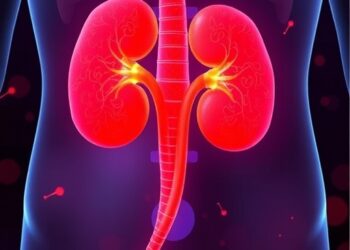Alternative splicing is a genetic process where different segments of genes are removed, and the remaining pieces are joined together during transcription to messenger RNA (mRNA). This mechanism increases the diversity of proteins that can be generated from genes, by assembling sections of genetic code into different combinations. This is believed to enhance biological complexity by allowing genes to produce different versions of proteins, or protein isoforms, for many different uses.
Alternative splicing is a genetic process where different segments of genes are removed, and the remaining pieces are joined together during transcription to messenger RNA (mRNA). This mechanism increases the diversity of proteins that can be generated from genes, by assembling sections of genetic code into different combinations. This is believed to enhance biological complexity by allowing genes to produce different versions of proteins, or protein isoforms, for many different uses.
New research from the University of Chicago suggests that alternative splicing may have an even greater influence on biology than just by creating new protein isoforms. The study, published this week in Nature Genetics, shows that the biggest impact of alternative splicing may come via its role in regulating gene expression levels.
The research team, led by Yang Li, PhD, Benjamin Fair, PhD, and Carlos Buen Abad Najar, PhD, analyzed large sets of genomic data, covering various stages from early transcription to when RNA transcripts are destroyed by the cell. They saw that cells produced three times as many “unproductive” transcripts—RNA molecules with mistakes or unexpected configurations—as when they analyzed steady-state, finished RNA only.
Unproductive transcripts are quickly destroyed by a cellular process called nonsense-mediated decay (NMD). Li’s team calculated that on average, about 15% of transcripts that are started are almost immediately degraded by NMD; when they looked at genes with low expression levels, that number went up to 50%.
“We thought that was a huge breakthrough,” said Li, who is an Associate Professor of Medicine and Human Genetics. “It already seems wasteful to degrade 15% of mRNA transcripts, but no one would have thought that the cell is transcribing so much and getting rid of the errors immediately, seemingly without any purpose.”
Why would the cell fire up its genetic production machinery to immediately trash 15 to 50% of its output? And why would transcription make so many mistakes in the first place?
“We think it’s because NMD is so efficient,” Li said. “The cell can afford to make mistakes without damaging things, so there’s no selective pressure to make fewer mistakes.”
But Li suspected there must also be some purpose for such a widespread phenomenon. His team conducted a genome wide association study (GWAS) to compare gene expression levels across different cell lines. They found many variations at genetic locations that are known to affect the level of unproductive splicing. These loci were just as often associated with differences in genetic expression caused by NMD as they were with differences in production of multiple protein isoforms.
Li believes cells sometimes purposely select transcripts doomed for NMD to decrease expression levels. If the nascent RNA is destroyed before it gets fully transcribed, it will never produce proteins to execute biological functions. This effectively silences the genes, like deleting an email draft before its writer can press send.
“We found that genetic variations that increase unproductive splicing often decreased gene expression levels,” Li said. “This shows that there this mechanism must have some effect on expression, because it is so widespread.”
The team found that many variants linked to complex diseases are also associated with more unproductive splicing and decreased gene expression. So, they believe that better understanding its impact could help develop new treatments that leverage the alternative splicing-NMD process. Drug molecules could be designed to decrease the amount of unproductive splicing, and thus increase gene expression. One approved drug for spinal muscular atrophy already takes this approach to restore proteins that are being shut off. Another approach could be to increase the NMD process to decrease expression, for example in rampant cancer genes.
“We think we can target a lot of genes because now we know how much this process is going on,” Li said. “People used to think that alternative splicing was mainly a way to make an organism more complex by generating different versions of proteins. Now we’re showing that it might not be its most important function. It could be simply to control gene expression.”
The study, “Global impact of unproductive splicing on human gene expression levels and traits,” was supported by funding from the National Institutes of Health (grants R01GM130738, R01HG011067, and R35GM147498), a GREGoR Consortium Grant and the W. M. Keck Foundation.
Additional authors include Junxing Zhao, Austin Reilly, Gabriela Mossian, Jonathan P Staley, and Jingxin Wang from the University of Chicago, and Stephanie Lozano from the University of California, Davis.
Journal
Nature Genetics
Method of Research
Data/statistical analysis
Subject of Research
Cells
Article Title
Global impact of unproductive splicing on human gene expression
Article Publication Date
2-Sep-2024




